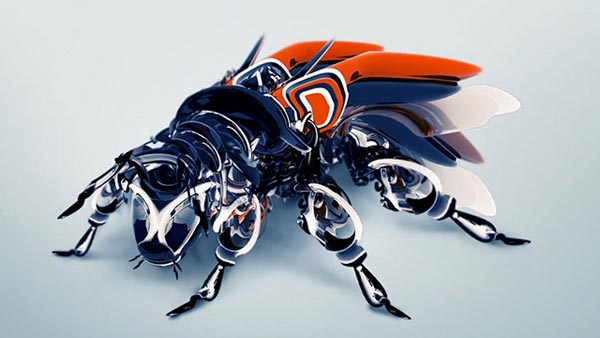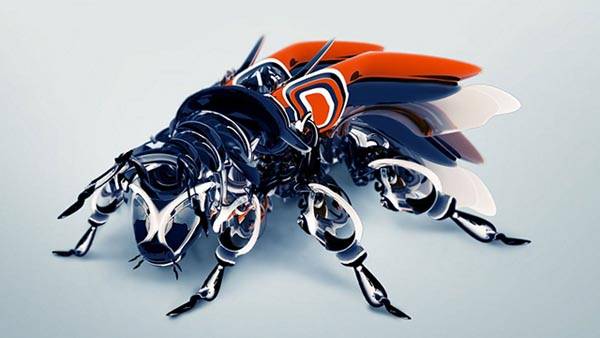New project aims to upload a honey bee’s brain into a flying insectobot by 2015
Source: io9.com

Every once in a while, there’s news which reminds us that we’re living in the age of accelerating change. This is one of those times: A new project has been announced in which scientists at the Universities of Sheffield and Sussex are hoping to create the first accurate computer simulation of a honey bee brain — and then upload it into an autonomous flying robot.
This is obviously a huge win for science — but it could also save the world. The researchers hope a robotic insect could supplement or replace the shrinking population of honey bees that pollinate essential plant life.
Powerful and affordable
Now, while this might sound like some kind of outlandish futurist joke, there are some serious players — and money — involved. Called the "Green Brain Project," it was recently given £1 million (USD $1,614,700) by the Engineering and Physical Sciences Research Council (EPSRC), as well as hardware donations from the NVIDIA corporation.
Specifically, NVIDIA will provide them with high-performance graphical processing units called GPU accelerators. This will allow the researchers to simulate aspects of a honey bee’s brain by using massively paralleled desktop PCs. While this will certainly work to promote the NVIDIA brand, it will also allow the researchers to conduct their project inexpensively (supercomputer clusters aren’t cheap).
And indeed, the researchers are going to need all the computational power they can get; it may appear that insects have simple minds — but their brains can be extremely complex.
Creating autonomy
Now, it should be noted that the researchers aren’t trying to emulate a complete honey bee brain, but rather two specific and complex functions within it, namely vision and sense of smell. Once complete, they will upload those models into a robotic honey bee so that it can act autonomously.
"This is an important further advance over current work on brain models because it is becoming more and more clear that an essential aspect of brain function is that the brain is not acting in isolation but in constant interaction with the body and the environment," they note in their proposal, "This concept of ’embodiment’ and its consequences for cognition are important insights of modern cognitive science and will become equally important for modern neuroscience."
By isolating and modeling these particular functions, the researchers hope to provide their flying robot with the cognitive power required to perform basic tasks — and without a set of pre-programmed instructions.
[...]
Read the full article at: io9.com






















